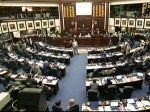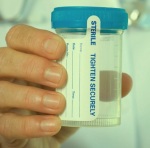 By: Jacqueline Bain
By: Jacqueline Bain
For many years, medical providers and regulators have wrestled with whether Advance Registered Nurse Practitioners (“ARNPs”) and Physician Assistants (“PAs”) should be able to prescribe controlled substances. This past legislative session, several bills were signed into law allowing ARNPs and PAs to prescribe controlled substances subject to several limitations and restrictions. This article will set forth a broad overview of the bills. However, if your practice intends to use ARNPs or PAs to prescribe controlled substances, we strongly recommend that each practitioner is educated about the boundaries set forth in the new law. For instance, there are restrictions on prescribing certain controlled substances in certain circumstances, prescribing controlled substances within a pain management clinic, and prescribing controlled substances for persons under age 18. It is important that all practitioners are properly educated prior to engaging in prescribing or dispensing any controlled substances.
Advance Registered Nurse Practitioners
ARNPs may prescribe or dispense Schedule II, III or IV controlled substances if they have graduated from a program leading to a master’s or doctoral degree in a clinical nursing specialty area with training in specialized skills and have completed 3 hours of continuing education on the safe and effective prescription of controlled substances. ARNPs must limit their prescriptions of Schedule II controlled substances to a 7-day supply. However, this restriction does not apply to psychiatric ARNPs who are prescribing psychiatric medications.Continue reading







